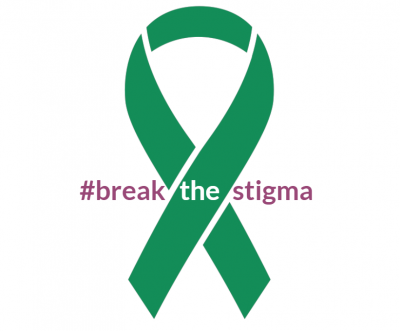Mental Health Awareness – and Tips!

October 8, 2020
Mental Health Awareness Month last May taught us a lot, and what better time to journey back to what we learned 5 months ago and apply it now, while we’re in a global pandemic. COVID-19 has taken a toll on the mental health of millions across the globe, and as students, we know it has taken a toll on ours as well. That’s why it is so crucial to keep a good mindset through these extraordinary times and step out of reality for a second just to let your mind catch up. Here at LTHS, the staff is doing everything they can to make the school experience as authentic and ordinary as it was last year. However, this can only happen successfully when we as students try our best. It can be really difficult to “try our best” when our best just doesn’t seem to be enough anymore. But don’t worry, we all feel the same way and have each other for support.
For starters, I think it’s important to know all the symptoms of stress and how it can affect your body. Stress is a hardwired physical response that is used to protect our bodies from harm. Your adrenal glands release hormones called Cortisol, Epinephrine, and Norepinephrine, which create signals that travel through your body to trigger your fight or flight response. Basically, your body is trying to keep you safe. Whether stress is caused by asking a teacher for help in a quiet classroom, or maybe having to participate in break-out rooms, it’s comforting to understand your body is overreacting, and that you have full control of the situation.
In order to feel your best, you have to be able to step back and understand that if everyone puts their best effort forth, things will run smoothly. I’ve compiled a list of breathing and self-care routines to do before, during, and after school so you can always feel your best when coming back for Hybrid Learning.
A major component of stress relief is learning to breathe properly. When taking in a deep breath your shoulders probably rise right? Well, believe it or not, you’re actually breathing wrong. In order to breathe in a full and anatomically congruent breath, this is what I usually think to myself. Push back the shoulders, expand in the waist/tummy on the inhale, and sigh out the air instead of forcing it out. The idea is that you breathe in air with your diaphragm, instead of with your shoulders and neck. Breathing with your shoulders can cause unnecessary stress and tense muscles. To practice this, there are some great stress-relieving breathing exercises that I like to do, especially when I’m nervous. There’s one that’s my favorite for when I’m stressed, it’s called 5 cubed. Which is where you breathe in for 5 seconds, hold that breath for 5 seconds and exhale for 5 seconds. This exercise forces you to breathe in your whole lung capacity, hold it, and exhale all of that air. This lowers your heartbeat and decreases unnecessary stress in your body. When humans were alive in prehistoric times, they had stress as a signal in their brain to protect them from danger. Anxiety is one of those things that never fully adapted to present times, so when you’re scared for that test you didn’t study for, your brain sends a signal way stronger than necessary to the rest of your body, making you sweat profusely, and experience shortness of breath. This can lead to hyperventilation and other negative effects on your body. So when you feel an anxiety attack or serious stress bubbling up, it’s important to remember 5 cubed.
A common thing people do to reduce stress is frequent exercise. Stress relief and exercise are heavily connected, and they go hand in hand. When you exercise daily and eat healthily, your mental health stress may be reduced. But when you don’t exercise or care for your body, the quality of your mental health can plummet. I’m not saying you should become a bodybuilder and hit the gym at 5 AM, but light exercise for each muscle group can increase blood flow, muscle strength, stamina, and most importantly quality of happiness. Daily exercise may help you in the future, even before the stress hits.
Last but not least, primping. Girls and guys, you know how great it feels to just take a day to pamper yourself and do a good face mask. Personally, nothing feels better and is more confidence-boosting than shaving those legs. It boosts morale, and good hygiene, personally, makes me feel so much better about myself. Whenever I go to school shaved head to toe, I feel bold and more outgoing. This is a great, but small way to increase self-esteem and assertiveness throughout the school day.
In order to feel confident and vibrant, it’s important to find the right products that make you feel your best during the summer or virtual learning, so that when you come to school you have it all figured out. I always pluck my eyebrows and make sure I double deep condition because it’s a great feeling to walk into school knowing that you look and smell like THAT girl. Feeling prepared and pampered helps immensely to lower stress levels. The night before a school day, I find it very important to shower, pack your bag for school, plan out what you’ll wear, and then read before going to bed. I hate reading just as much as anyone else when I can just watch Tik Toks until 3 am, but trust me your brain will thank you. When your brain can’t turn off when you sleep, you won’t get proper REM sleep. Which stands for Rapid Eye Movement sleep. This is when your muscles deeply relax, and your eyes rapidly move like you are blinking. This is also the time when dreams can appear. Overall, this deep sleep recharges your body and nervous system, so when you get to school, your body doesn’t mistake a hard test for a Dinosaur trying to eat you.
Here are some stress-reducing games and websites to use during school:
- http://touchpianist.com/
- http://weavesilk.com/
- https://nathanfriend.io/inspirograph/
- http://colordodge.com/Kaleidoscope/
- https://coloringbook.pics/antistress-colorings/677/mandala/
- https://thewordsearch.com/
Sources
- The Best Bodyweight Exercise: https://www.youtube.com/watch?v=QBxKlqGgb8o
- The correct way to breath: https://www.youtube.com/watch?v=ldNnKVGxabA
- How stress affects your body: https://www.youtube.com/watch?time_continue=2&v=v-t1Z5-oPtU&feature=emb_title




